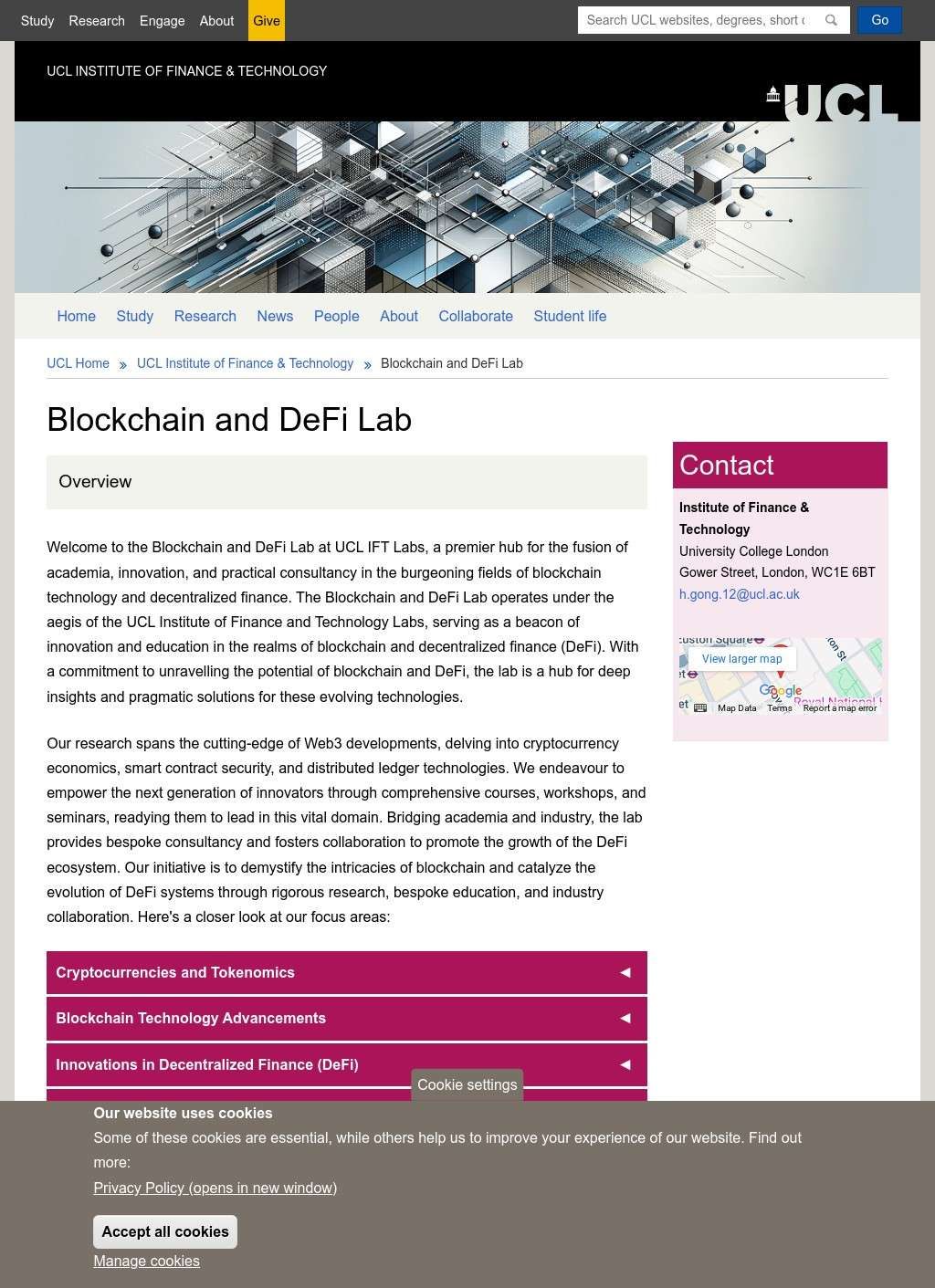The UCL Blockchain and DeFi Lab operates as a leading academic institution where theoretical research meets practical implementation in decentralized finance. Situated within University College London's Institute of Finance and Technology, this laboratory brings together world-class researchers, industry practitioners, and aspiring innovators to explore blockchain's transformative potential. The lab functions as more than just a research facility; it serves as an incubator for ideas that could reshape global financial systems through decentralized technologies.
Research at the UCL lab spans multiple dimensions of blockchain and DeFi ecosystems, with particular emphasis on cryptocurrency economics and tokenomics. Their researchers delve deep into understanding what drives token utility and value, developing sophisticated models that predict market behavior and ensure long-term sustainability. The lab's work on consensus algorithms and blockchain protocols pushes technical boundaries, seeking solutions to scalability challenges that currently limit DeFi adoption. Through rigorous academic inquiry combined with practical experimentation, they produce insights that benefit both theoretical understanding and real-world applications.
Education forms a central pillar of the lab's mission, with comprehensive courses designed to prepare the next generation of blockchain professionals. Their curriculum covers everything from basic blockchain principles to advanced smart contract development, ensuring students gain both theoretical knowledge and hands-on experience. Workshops and seminars bring together students with industry leaders, creating an environment where academic learning meets practical wisdom. The lab's educational programs attract participants from around the globe, fostering an international community of DeFi innovators who collaborate long after their formal studies conclude.
The laboratory's consultancy services bridge the gap between academic research and commercial implementation. Working with financial institutions, startups, and government bodies, they provide expert guidance on blockchain adoption strategies and DeFi integration. Their consultants help organizations navigate technical complexities while ensuring regulatory compliance and risk management. This practical engagement feeds back into their research, creating a virtuous cycle where real-world challenges inspire new academic investigations. The lab's unique position allows them to spot emerging trends before they become mainstream, giving their partners competitive advantages in rapidly evolving markets.
Smart contract security represents another crucial focus area for the UCL lab, recognizing that code vulnerabilities pose significant risks to DeFi adoption. Their researchers develop tools and frameworks that enhance smart contract reliability, conducting audits that identify potential exploits before they can be weaponized. The lab's work on formal verification methods helps ensure that DeFi protocols behave exactly as intended, building trust essential for mainstream adoption. By addressing security concerns proactively, they contribute to a more robust and reliable DeFi ecosystem that can handle billions in value without catastrophic failures.
The lab actively engages with regulatory bodies and policymakers, helping shape frameworks that encourage innovation while protecting consumers. Their researchers provide evidence-based recommendations on how to regulate DeFi without stifling its innovative potential. They explore questions about jurisdiction in borderless financial systems, liability in autonomous protocols, and consumer protection in pseudonymous environments. This regulatory engagement ensures that academic insights influence policy decisions, creating environments where DeFi can flourish responsibly.
Recent publications from the lab demonstrate their cutting-edge research across multiple domains. Papers on Bitcoin transaction networks reveal how on-chain behavior correlates with price dynamics, while studies on mining pools expose potential centralization risks in supposedly decentralized systems. Their work on digital currencies examines velocity of money in cryptocurrency contexts, challenging traditional economic assumptions. The lab's researchers also investigate central bank digital currencies, analyzing how sovereign digital money might interact with decentralized alternatives. This diverse research portfolio positions them at the forefront of blockchain academic inquiry.
The UCL Blockchain and DeFi Lab stands as a testament to how academic institutions can drive innovation in emerging technologies. By combining rigorous research methodologies with practical industry engagement, they produce insights that advance both theoretical understanding and real-world implementation. Their commitment to education ensures knowledge transfer to future generations, while their consultancy work helps organizations navigate blockchain adoption successfully. As DeFi continues evolving from experimental technology to financial infrastructure, the lab's work becomes increasingly vital for understanding and shaping this transformation.
